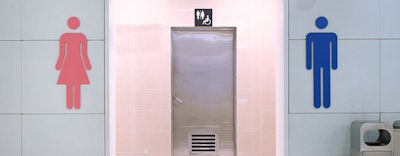
Sports facility operators have one fundamental duty: to provide a safe environment for athletes who participate in events and the spectators who attend them. While it is important to note that property owners are not the guarantors or insurers of their invitees' safety once they come onto their premises, facility owners are liable for those dangers that are known or that should have been discovered through reasonable inspections. In fact, failure to protect people from known risks is the number-one reason sports and recreation facilities end up in court. A couple of cases that illustrate these points are Patrick Pearson v. Philadelphia Eagles LLC, Case ID# 160800243 and Townsley et al., v. Cincinnati Gardens, Inc., 39 Ohio App. 2d 5 (1974).
Hostile territory
On Dec. 14, 2014, Patrick Pearson attended a football game between the Philadelphia Eagles and the Dallas Cowboys at Lincoln Financial Field (the Link) in Philadelphia. Although Eagles fans have a reputation for bad behavior, especially toward fans of rival teams, Pearson ignored that fact and attended the game wearing a Cowboys jersey. During the game, Eagles fans continuously jeered Pearson. When Pearson went to the restroom, things worsened. While in the restroom, Pearson was attacked by a group of unruly Eagles fans and suffered a fractured ankle that required two surgeries.
Pearson sued the Philadelphia Eagles LLC, the owner of the Eagles' stadium (Eagles Stadium Operators LLC), and Apex, the security agency handling public safety at the game in question. In his lawsuit, Pearson alleged that the Eagles and the other defendants were negligent in failing to provide a safe environment to watch the game and for failing to properly ensure the safety of attendees. In particular, Pearson argued that as an invitee to the Link, the property owner (the Eagles) or facility operator (Eagles Stadium Operators LLC) through their agents (Apex) has a duty to protect him from unreasonable risks. This includes making sure that the premises are free of any known defects or dangers (such as those associated with unruly fans), as well as any dangers that should have been discovered.
The Eagles and the other defendants argued that they did not breach their duty of care to Pearson because they did everything possible to protect him and keep him safe. In particular, they pointed out that the stadium had plenty of security on the day of the attack and that Apex had even deployed undercover operatives wearing Cowboys jerseys throughout the stadium in an attempt to identify Eagles fans who might harass Cowboys fans.
At trial, a jury found that the Eagles and the other defendants were negligent in their duty and responsible for Pearson's injuries. In particular, the jury found that Apex should have been better prepared for the potential danger. In support of this finding, Philadelphia Court of Common Pleas Judge Teresa Sarmina held that it is foreseeable that, at a sporting event where fans are drinking and engaging in enthusiastic banter and cheering for their teams, tensions may run high. In fact, the court noted that Apex actually anticipated such behavior and deployed undercover operatives wearing Cowboys jerseys to identify Eagles fans who were harassing fans of the opposing team.
As a result, the court deemed it foreseeable that altercations could take place in the bathroom, a possibility that Apex and the Eagles were aware of. Therefore, the court found it reasonable for the jury to conclude that, because the Eagles and Apex failed to provide a safe environment to Pearson, and because he was attacked in one of the blind spots to the security provided, his injuries were proximately caused by their negligence.
In March of this year, a jury awarded Pearson $700,000 in damages.
Anticipating trouble
In addition to Judge Sarmina's reasoning, the court's decision finds support in a long history of facility cases. In fact, 45 years ago, the Court of Appeals of Ohio, Hamilton County, faced a very similar case.
Much like the Pearson case, Harry Townsley went to the Cincinnati Gardens in Cincinnati to view a sporting event. However, unlike Pearson, who was attending an NFL game between divisional rivals, Townsley was assaulted at a Harlem Globetrotters basketball game. Townsley, like Pearson, was assaulted in a restroom. However, in Townsley's case it was by a group of boys seeking money from him, and not because he was cheering for the wrong team. As a result of the beating, Townsley suffered lacerations to the face and lips as well as the loss of two of his front teeth.
Townsley, a minor, and his father sued the Cincinnati Gardens for negligence. The trial court, like Judge Sarmina in the Pearson case, found for Townsley and held that the Cincinnati Gardens either knew — or, in the exercise of ordinary care, should have known — of the danger that victimized Townsley. In particular, the trial court noted that the security detail for the game was made up of only five police officers. The game was attended by 5,000 people. Since two of the police officers were stationed on the main level, there were really only three people supervising the level housing the isolated, dimly lit public restroom where Townsley was assaulted.
On appeal, however, the Ohio Appellate Court held that in order to be negligent, the facility must have had some prior knowledge or experience of the type of occurrence that occasioned Townsley's injuries, or that the facility owners should reasonably have known of or anticipated the type of danger or acts of third persons that resulted in the injuries sustained by the plaintiff.
In ruling for the facility, the appellate court held that the type of event, which would determine the probability of any trouble as well as the anticipated attendance, must be taken into consideration when considering the type of precautions and number of police officers needed for spectator protection.
Since the Globetrotters represent a family show, as opposed to a concert or boxing match where one could anticipate a greater possibility of trouble, the determination that five police officers represented ample protection for the evening seemed reasonable. Therefore, the court concluded that there was no evidence to show that the facility, because of prior activities upon the premises during any given performance, could have anticipated the act of the assailants. The law does not exact upon a business proprietor a degree of duty to anticipate that which could occur upon his premises to the distress or damage of his invitees beyond that which could reasonably be foreseen.
It is true at this point in time that such an incident has taken place in the Cincinnati Gardens, and the proprietor has now become aware of the potential of such an incident. Therefore, it may be necessary to add extra security personnel or to have them make periodic visits to restrooms to protect the facilitiy's invitees.
Reasonable care
While most venues are not as large as the 69,000-seat Lincoln Financial Field or the 10,000-seat Cincinnati Gardens, sports and recreation facility operators and event organizers can still learn valuable lessons from the two cases.
First, as the Townsley case illustrates, it is important to remember that property owners and businesses may not be liable for every injury that happens on their premises. Second, while facility operators may be not liable for every injury that happens on their premises, the Pearson case stresses that they are liable for protecting guests/invitees from those dangers that are foreseeable. In other words, before a facility can be negligent it must have some prior knowledge of the danger or should have had prior knowledge of the danger had reasonable care been exercised in inspecting the facility.
If the facility owner has no knowledge of the dangers and could not have discovered them in the exercise of ordinary care, the facility is not liable for any injuries.
This article originally appeared in the September 2019 issue of Athletic Business with the title "Restroom beating cases illustrate potential liability blind spot." Athletic Business is a free magazine for professionals in the athletic, fitness and recreation industry. Click here to subscribe.
































